Domestic violence is a global problem which leaves many serious consequences for people, especially for women. It is not an exception in Vietnam. Professor Le Thi Quy, Director of the Research Centre for Gender and Development has devoted her heart and efforts to the fight against domestic violence and has helped many couples in Vietnam heal the wounds.
Until now, the project entitled “House of Refuge in the Community” of Prof. Le Thi Quy is still considered the most successful and effective model in domestic violence prevention and control in the country.
The story began in 2002 when Prof. Quy conducted a sociological survey in the town of Thanh Ne (in Kien Xuong District, Thai Binh Province) and Vu Lac Commune (in Thai Binh) which were considered two hotspots of domestic violence. Results of the survey were startling and painful. Domestic violence cases in these areas included the husband beating and crippling the wife, chasing to kill the wife and threatening to stuff the wife’s mouth with cow manure, etc.
Facing this painful reality, Prof. Quy decided to devise projects to prevent and fight against domestic violence in these areas.
In 1989 she was known to be the first to research the issues of domestic violence and gender inequality in Vietnam. She knew that other countries in the world used to build houses of refuge to help the victims of domestic violence. But this was unable to be done in Vietnam due to the difficult economic conditions. So she implemented her project in her own way.
In Vu Lac Commune, she came forward and called for the establishment of a project management board which consisted of the local government bodies, such as the police, the veterans’ organization and the women’s association. She said that the project could only be successful with the participation of the authorities.
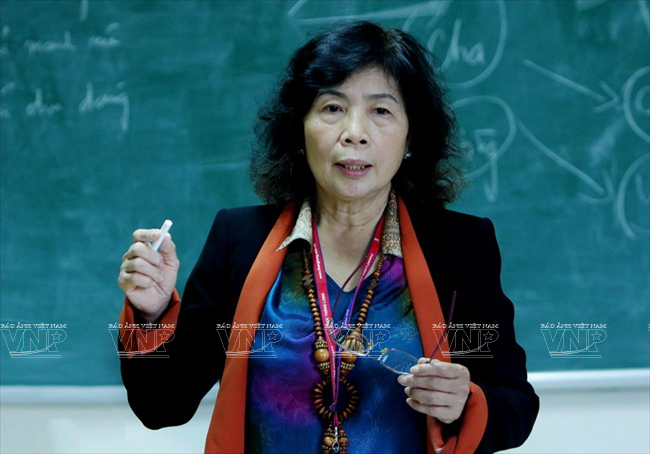
Prof. Le Thi Quy – Director of the Research Centre for Gender and Development
is the pioneer who researches domestic violence in Vietnam.
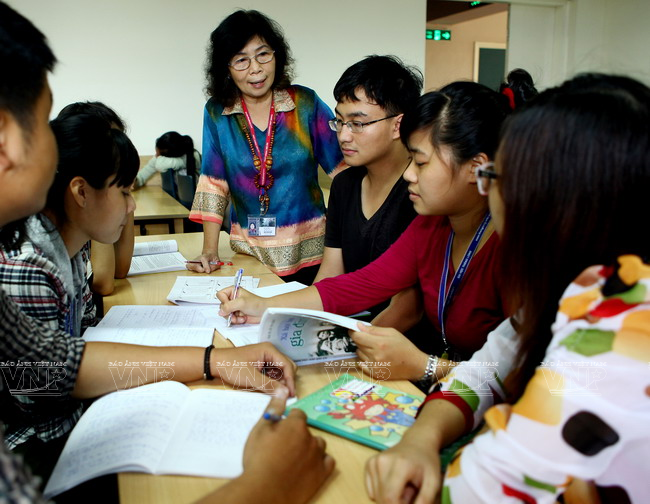
Prof. Le Thi Quy instructs students of Thang Long Universty on the method of researching family issues in Vietnam.
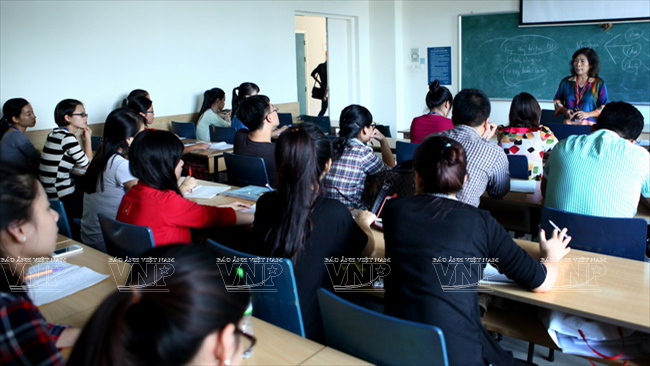
Prof. Le Thi Quy also works as the head of the family studies subject at Thang Long University.
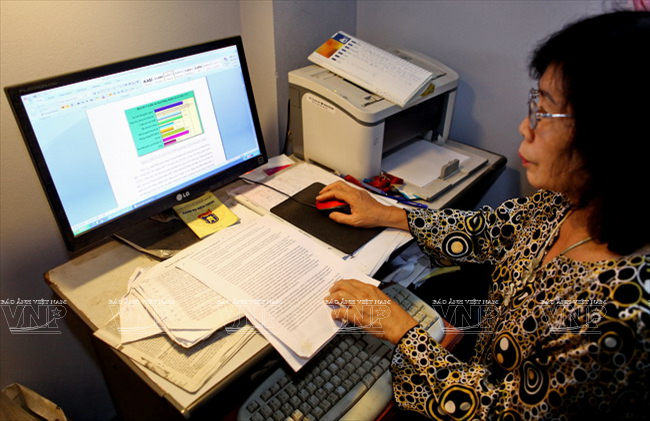
Prof. Le Thi Quy has devoted her life to researching solutions to domestic violence in Vietnam.
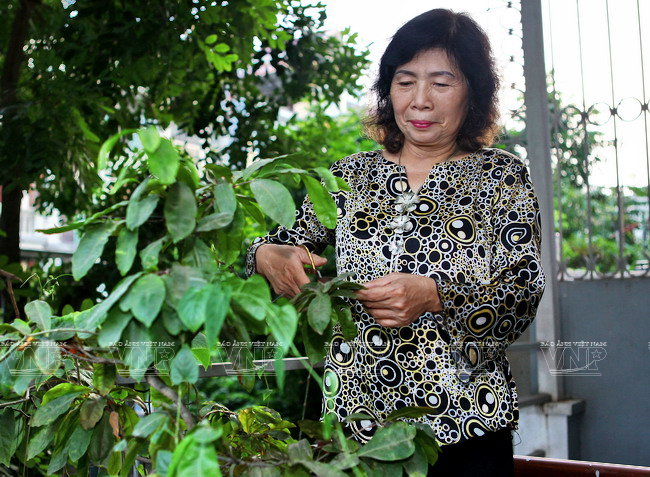
Relaxing after working hard. |
«
In 2005, Prof. Le Thi Quy was listed among 1,000 women in the world who were nominated for the Nobel Peace Prize. She is a member of international organizations, such as ARENNA and APWLD and is a joint head of the “Group of Asian Women.
»
|
At first, the persuasion of the local authorities to participate in the project was not easy because of the thinking of some people, a man beating his wife was a private issue of his family and outsiders should not interfere. So Prof. Quy had to make great efforts to convince the people, even providing the evidence which had been gathered from the sociological surveys. Eventually, the local authorities decided to participate in her project.
After the project management board was established, she started to organise a broad communication campaign, such as popularizing information, hanging banners and slogans in all villages of Vu Lac Commune and establishing an address to receive “hot information”. So, all people, even children, who formerly did not know about domestic violence became active communicants. Also, she had the initiative of establishing a rapid intervention team which consisted of the police and healthy young men who were able to be at the site in time to stop domestic violence when they received the information.
The problem was even worse, because some victims of the violence escaped but they could not find a place of refuge to avoid further violence. It is characterized in the villages in Vietnam that when beaten by the husband, the wife often flees to her parents’ home, but her parents won’t take her back for fear of losing face with her husband’s family. She was also unable to find a safe refuge in her brothers’ and sisters’ home. While Prof. Quy was in a stalemate, it was the people who helped her find the initiative; to use the house of the head of the veterans’ organization or the house of the head of the women’s association as a place of refuge for people who were victims of violence. In these places the husband would not dare do wrong.
Prof. Quy merrily said: “After these drastic actions, there was almost no more domestic violence in Vu Lac and Thanh Ne. Now there are only some quarrels between husbands and wives and no wife-beating cases happen.”
She also said that Thanh Ne had established 43 reliable refuge places and in Vu Lac Commune, 35 places. The number of domestic violence cases in these areas has decreased over 90% compared with the past. After this model was successful, Prof. Quy applied it in some provinces and cities, such as Phu Tho, Nam Dinh and Hanoi. In the areas where the project was implemented the numbers of domestic violence decreased significantly. Later, when the Law on Domestic Violence Prevention and Control was promulgated (in 2007), the reliable addresses in her project were taken as examples to be developed in the communities.
After more than 20 years of devoting her efforts to the fight against family violence, what makes Prof. Le Thi Quy most happy is that each time she revisits the localities, not only the women but also the men who were once the perpetrators of domestic violence are happy to meet her again. Thanks to her, their families’ life is cozy and wealthier and their village is peaceful and joyous.
Story: Thao Vy - Photos: Trinh Van Bo